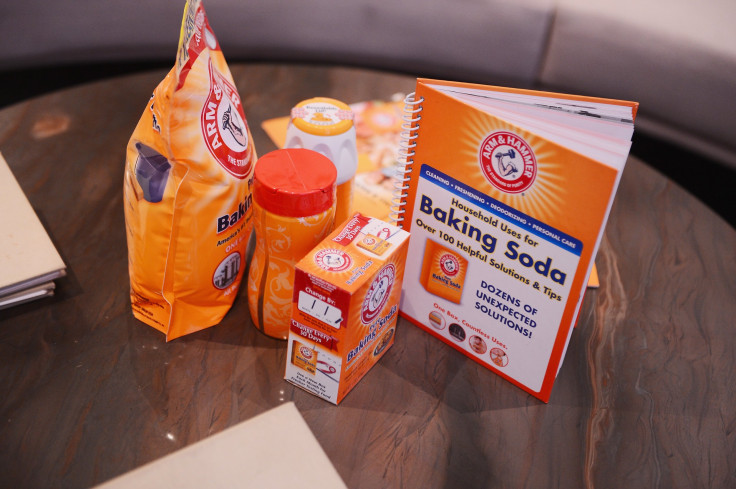Rheumatoid Arthritis Symptoms, Causes: Baking Soda Reduces Inflammation, Study Finds

A daily intake of baking soda could help reduce rheumatoid arthritis (RA) inflammation, a study found for the first time. Researchers from Augusta University revealed in the study published in the Journal of Immunology that someone who has an autoimmune disease could benefit from drinking baking soda, or sodium bicarbonate.
According to the study, baking soda, or sodium bicarbonate tells the spleen — which is part of the immune system — to go easy on the immune response by being therapeutic in the face of inflammatory disease.
“Certainly drinking bicarbonate affects the spleen and we think it’s through the mesothelial cells,” study co-author Paul O’Connor from Augusta University in Georgia said.
The study showed that when rats or healthy people drink a solution of baking soda, or sodium bicarbonate, it becomes a trigger for the stomach to make more acid to digest the next meal. A shift in the population of immune cells called macrophages in the spleen, as well as the blood and kidneys, takes place from primarily those that promote inflammation, called M1, to those that reduce it, called M2. This takes place after drinking water with baking soda for two weeks, the study says.
“The shift from inflammatory to an anti-inflammatory profile is happening everywhere,” O’Connor said. “We saw it in the kidneys, we saw it in the spleen, now we see it in the peripheral blood.”
A shift was also noticed in other immune cell types, like more regulatory T cells, which generally brings down the immune response and help keep the immune system from attacking own tissues. According to the study, the shift was sustained for at least four hours in humans and three days in rats.
“It’s potentially a really safe way to treat inflammatory disease,” O’Connor said.
Signs and symptoms of rheumatoid arthritis include tender, warm, swollen joints; joint stiffness, fatigue, fever and weight loss. It can affect many nonjoint structures, including skin, eyes, lungs, heart, kidneys, bone marrow, nerve tissues, blood vessels and salivary glands.
The chronic inflammatory disorder is caused when the immune system attacks the synovium — the lining of the membranes that surround the joints. Smoking, obesity, family history and age are all factors of rheumatoid arthritis.
About 1.5 million people in the United States have RA. nearly three times as many women have the disease as men.
"If inflammation goes unchecked, it can damage cartilage, the elastic tissue that covers the ends of bones in a joint, as well as the bones themselves. Over time, there is loss of cartilage, and the joint spacing between bones can become smaller. Joints can become loose, unstable, painful and lose their mobility. Joint deformity also can occur. Joint damage cannot be reversed, and because it can occur early, doctors recommend early diagnosis and aggressive treatment to control RA," the Arthritis Foundation states on its website.
© Copyright IBTimes 2024. All rights reserved.




















